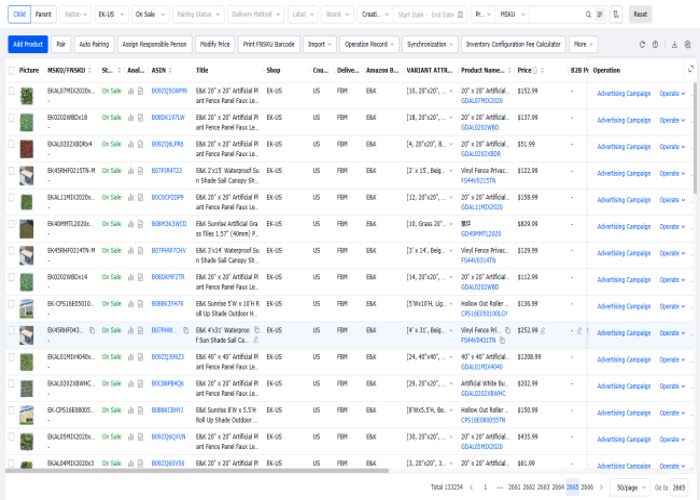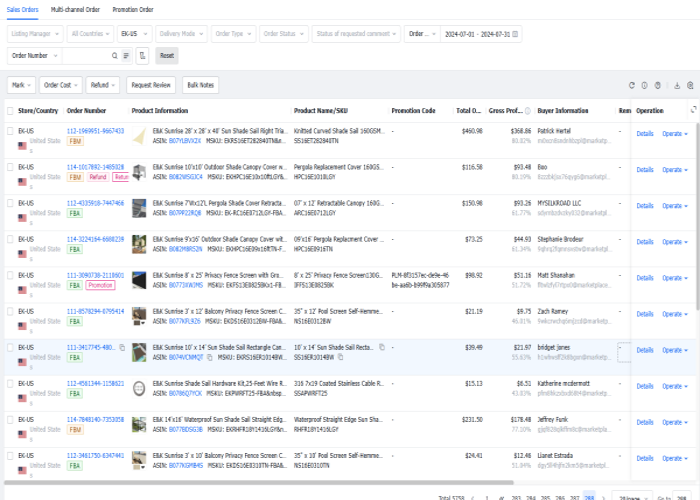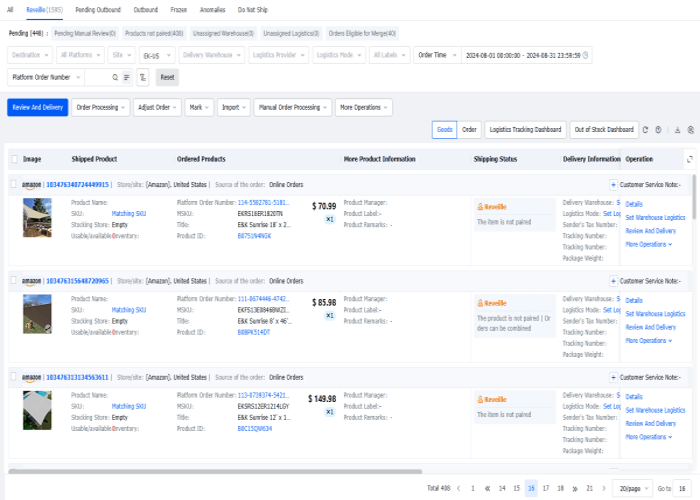- Listing management
After adding store authorization, users can view the MSKU list created by authorized stores on the Amazon platform, as well as ParentAsin, ratings, number of comments, sales volume, category ranking, etc., on the online product page of sales management. The sales volume comes from the sales statistics module;
MSKU (Merchant SKU) is a SKU on the Amazon seller platform, which is a code used in this system for local product management;
Sort by sales volume in descending order by default.

- Clear order status
After synchronizing the listing, there are three states:
On sale: corresponding to the “active” and “incomplete” in the report.
Suspension of sales: corresponding to the “inactive” in the report.
Deleted: It is a mark automatically compared by the system. If the MSKU was present in previous reports but not in the latest report, it will be marked as “deleted”
After synchronizing the listing to the system, it does not support deletion. Even if the status is displayed as “deleted”, it cannot be deleted. It is supported to set the list that has been deleted not to be displayed in [Settings – Business Configuration – Sales].
- Platform orders
Users can view the orders generated by authorized stores on the Amazon platform in this system, and can follow up on abnormal orders and analyze order profits without logging into multiple backends. Default sorting by descending order date.

- FBM Order Mananement
This module supports processing platform self shipping orders, including Amazon FBM orders and self shipping orders that have been integrated with the platform by the system. These orders are automatically synchronized to the system, and users can view order details, merge or split orders, allocate warehouses, assign logistics methods, review and push orders to the warehouse in the [Order Management] module. The warehouse will then perform picking, issuing, packaging, and shipping, completing order release and fulfillment.
